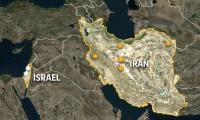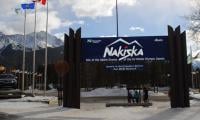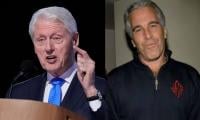The three Sharifs
As things stand today, Pakistan’s political, security and social situations are defined by three Sharifs: Nawaz Sharif, Raheel Sharif and Ramzan Sharif.The first Sharif is caught up in political dilemmas as reconciliation – a euphemism for scratching each other’s back – becomes more and more difficult to espouse. With the
By Talat Farooq
July 06, 2015
As things stand today, Pakistan’s political, security and social situations are defined by three Sharifs: Nawaz Sharif, Raheel Sharif and Ramzan Sharif.
The first Sharif is caught up in political dilemmas as reconciliation – a euphemism for scratching each other’s back – becomes more and more difficult to espouse. With the MQM and PPP under progressively darkening clouds, fence-perching is fast becoming an uncomfortable position.
Certain long-overdue decisions – invigorating Nacta, reforming the Criminal Procedure Code, privatisation of sick public sector enterprises – keep hanging and swinging in the air like clothes on a washing line, left out there to dry under a sweltering sun that is sapping the energy of an exhausted nation – figuratively and literally.
He is crystal clear when it comes to choosing between visible mega projects and the not-so-immediately visible but desperately needed amelioration of health and education sectors. Yet he dithers when it comes to dealing with banned outfits and the issue of terrorist funding as envisaged in the National Action Plan.
The Sharif government continues to ride two boats simultaneously. With one boat sailing downstream and the other going upstream, it is fast becoming a difficult feat to perform.
Two days ago Nawaz Sharif put the outgoing German ambassador’s mind at rest by ensuring him that “the elimination of terrorism and resolving the energy issue are the top priorities of the government”. This is heartening; if the Germans believe the PM then can spring be far behind?
In the meantime, the hapless millions caught in the labyrinth of energy crisis, inflation and lawlessness must, as the PM recently admonished, learn to patiently endure the harsh realities of life. Such stoicism will help him complete his term in peace.
Sharif flew to Karachi days after the city lost more than 1200 inhabitants due to unbearable heat and never-ending loadshedding. He remained unwilling to take on either his own federal ministers or the inept, corrupt and downright callous PPP government in Sindh. He failed to visit any of the hospitals to ask after the health of hundreds of heatwave victims.
But all is not bleak for Sharif. The PTI is bent upon improving his standing. There are those of us who, without resorting to hero-worship, had hoped that Imran Khan, despite his glaring flaws, will learn to become the kind of leader this country needs. So far he has failed to live up to such expectations. Unsurprisingly then, Nawaz Sharif is one up on the PTI, thanks to 35 punctures.
In contrast, General Raheel Sharif continues to grow tall because of his integrity and professionalism. He has shown remarkable courage in taking and implementing tough decisions under extremely complex circumstances.
He has wisely ordered inquiries to punish the corrupt within the army even as he has vowed to ‘finish all mafias’ in Karachi whose existence is directly beneficial to terrorists.
It is not just his strategic decisions leading to military successes in Fata or his will to challenge the status quo in Karachi or his refusal to revert to failed strategies to counter an immature Modi; it is also his inter-personal leadership qualities that distinguish him from the political elite.
Take the latest example: despite his equally busy schedule he found the time to attend the funeral of those killed in the Gujranwala tragedy, visit the hospital to inquire about the health of the injured and then dash to North Waziristan to be with his troops close to the Pak-Afghan border.
It is quite likely that Nawaz Sharif did not visit hospitals in Karachi to avoid facing angry aggrieved families. In other words he was wary of public opinion. He need not have bothered because the public is too busy entertaining and getting entertained by Ramzan Sharif.
The third Sharif has transformed into something unrecognisable over the years. There are those in this land of the pure who give up on alcohol during Ramzan and revert to it afterwards. One would have thought that Ramzan was not about postponing harmful behaviour but giving it up altogether.
The month used to be about eating less, sleeping less and working as per normal hours. It has gradually turned into an excuse for lethargy and shirking responsibility. Sehri, we were taught, is the time for introspection and contemplation and Iftar is about simplicity. Ramzan Sharif, after all, is about empathising with the less fortunate.
It is amazing how media channels have turned the third Sharif into a deafening cacophony from Sehri to Iftar. So much so that when we are not eating food we are talking about it on cooking shows or watching repetitive commercials that inundate us with opulent Iftar tables.
The various prize-showering shows aired by almost every channel is the cherry on the cake. It is painful to watch outstretched hands trying to snatch an iron or a blender or some other such mundane stuff from a rampaging anchor as if one more juicer or a motorbike will take the audience to the next level of spiritual bliss.
The ‘mullah galore’ on our TV screens makes Ramzan Sharif PR time for the (self) righteous. Well, I have a question for them. I am no expert on religion but bestowing free goodies upon people who do not appear to be needy does not seem quite the right thing to do. Any comment, maulana?
The writer is an academic , currently affiliated with Meliksah University, Turkey.
Email: talatfarooq11@gmail.com
The first Sharif is caught up in political dilemmas as reconciliation – a euphemism for scratching each other’s back – becomes more and more difficult to espouse. With the MQM and PPP under progressively darkening clouds, fence-perching is fast becoming an uncomfortable position.
Certain long-overdue decisions – invigorating Nacta, reforming the Criminal Procedure Code, privatisation of sick public sector enterprises – keep hanging and swinging in the air like clothes on a washing line, left out there to dry under a sweltering sun that is sapping the energy of an exhausted nation – figuratively and literally.
He is crystal clear when it comes to choosing between visible mega projects and the not-so-immediately visible but desperately needed amelioration of health and education sectors. Yet he dithers when it comes to dealing with banned outfits and the issue of terrorist funding as envisaged in the National Action Plan.
The Sharif government continues to ride two boats simultaneously. With one boat sailing downstream and the other going upstream, it is fast becoming a difficult feat to perform.
Two days ago Nawaz Sharif put the outgoing German ambassador’s mind at rest by ensuring him that “the elimination of terrorism and resolving the energy issue are the top priorities of the government”. This is heartening; if the Germans believe the PM then can spring be far behind?
In the meantime, the hapless millions caught in the labyrinth of energy crisis, inflation and lawlessness must, as the PM recently admonished, learn to patiently endure the harsh realities of life. Such stoicism will help him complete his term in peace.
Sharif flew to Karachi days after the city lost more than 1200 inhabitants due to unbearable heat and never-ending loadshedding. He remained unwilling to take on either his own federal ministers or the inept, corrupt and downright callous PPP government in Sindh. He failed to visit any of the hospitals to ask after the health of hundreds of heatwave victims.
But all is not bleak for Sharif. The PTI is bent upon improving his standing. There are those of us who, without resorting to hero-worship, had hoped that Imran Khan, despite his glaring flaws, will learn to become the kind of leader this country needs. So far he has failed to live up to such expectations. Unsurprisingly then, Nawaz Sharif is one up on the PTI, thanks to 35 punctures.
In contrast, General Raheel Sharif continues to grow tall because of his integrity and professionalism. He has shown remarkable courage in taking and implementing tough decisions under extremely complex circumstances.
He has wisely ordered inquiries to punish the corrupt within the army even as he has vowed to ‘finish all mafias’ in Karachi whose existence is directly beneficial to terrorists.
It is not just his strategic decisions leading to military successes in Fata or his will to challenge the status quo in Karachi or his refusal to revert to failed strategies to counter an immature Modi; it is also his inter-personal leadership qualities that distinguish him from the political elite.
Take the latest example: despite his equally busy schedule he found the time to attend the funeral of those killed in the Gujranwala tragedy, visit the hospital to inquire about the health of the injured and then dash to North Waziristan to be with his troops close to the Pak-Afghan border.
It is quite likely that Nawaz Sharif did not visit hospitals in Karachi to avoid facing angry aggrieved families. In other words he was wary of public opinion. He need not have bothered because the public is too busy entertaining and getting entertained by Ramzan Sharif.
The third Sharif has transformed into something unrecognisable over the years. There are those in this land of the pure who give up on alcohol during Ramzan and revert to it afterwards. One would have thought that Ramzan was not about postponing harmful behaviour but giving it up altogether.
The month used to be about eating less, sleeping less and working as per normal hours. It has gradually turned into an excuse for lethargy and shirking responsibility. Sehri, we were taught, is the time for introspection and contemplation and Iftar is about simplicity. Ramzan Sharif, after all, is about empathising with the less fortunate.
It is amazing how media channels have turned the third Sharif into a deafening cacophony from Sehri to Iftar. So much so that when we are not eating food we are talking about it on cooking shows or watching repetitive commercials that inundate us with opulent Iftar tables.
The various prize-showering shows aired by almost every channel is the cherry on the cake. It is painful to watch outstretched hands trying to snatch an iron or a blender or some other such mundane stuff from a rampaging anchor as if one more juicer or a motorbike will take the audience to the next level of spiritual bliss.
The ‘mullah galore’ on our TV screens makes Ramzan Sharif PR time for the (self) righteous. Well, I have a question for them. I am no expert on religion but bestowing free goodies upon people who do not appear to be needy does not seem quite the right thing to do. Any comment, maulana?
The writer is an academic , currently affiliated with Meliksah University, Turkey.
Email: talatfarooq11@gmail.com
-
 AI Safety Battle: Anthropic Fires Back At Pentagon After US Military Flags It ‘supply Chain Risk’
AI Safety Battle: Anthropic Fires Back At Pentagon After US Military Flags It ‘supply Chain Risk’ -
 OKC Vs Nuggets: NBA MVP Shai Gilgeous-Alexander Scores 36 In Fiery Overtime Win
OKC Vs Nuggets: NBA MVP Shai Gilgeous-Alexander Scores 36 In Fiery Overtime Win -
 Eric Dane's Biggest Regret Comes To Light Following Days Of His Death
Eric Dane's Biggest Regret Comes To Light Following Days Of His Death -
 Israel Launches Attack On Iran's Capital And Declares State Of Emergency
Israel Launches Attack On Iran's Capital And Declares State Of Emergency -
 At Least 15 Dead After Military Plane Carrying New Banknotes Plunges Out Of Control In Bolivia
At Least 15 Dead After Military Plane Carrying New Banknotes Plunges Out Of Control In Bolivia -
 OpenAI Partners With Pentagon After Trump Bans Anthropic AI
OpenAI Partners With Pentagon After Trump Bans Anthropic AI -
 Trump Orders Federal Agencies To Stop Using Anthropic AI Tools
Trump Orders Federal Agencies To Stop Using Anthropic AI Tools -
 Shocking Details Emerge In Martin Short’s Daughter Katherine's Death Investigation: 'Kept To Herself'
Shocking Details Emerge In Martin Short’s Daughter Katherine's Death Investigation: 'Kept To Herself' -
 Daniel Serafini Gets Life Without Parole In In-laws Murder And Attempted Murder Case
Daniel Serafini Gets Life Without Parole In In-laws Murder And Attempted Murder Case -
 Yerin Ha On Stepping Into The Spotlight In Bridgerton Season Four
Yerin Ha On Stepping Into The Spotlight In Bridgerton Season Four -
 Nakiska Ski Area Avalanche Leaves Youth Unresponsive, Second Skier Escapes Unhurt
Nakiska Ski Area Avalanche Leaves Youth Unresponsive, Second Skier Escapes Unhurt -
 Igor Komarov Missing In Bali: Seven Foreign Suspects Arrested In Kidnapping Probe
Igor Komarov Missing In Bali: Seven Foreign Suspects Arrested In Kidnapping Probe -
 'I Swear' Director Kirk Jones Says Bafta Broadcast Mishap Failed Tourette’s Advocate
'I Swear' Director Kirk Jones Says Bafta Broadcast Mishap Failed Tourette’s Advocate -
 Yogurt Shop Murders Solved: 1991 Austin Cold Case Finally Linked To Serial Killer
Yogurt Shop Murders Solved: 1991 Austin Cold Case Finally Linked To Serial Killer -
 Iran Tensions Rise As Trump Says He Is 'not Thrilled' With Nuclear Negotiations
Iran Tensions Rise As Trump Says He Is 'not Thrilled' With Nuclear Negotiations -
 Where Is Calvin Klein's Wife Kelly Klein Now After Divorce And Fashion Fame?
Where Is Calvin Klein's Wife Kelly Klein Now After Divorce And Fashion Fame?



